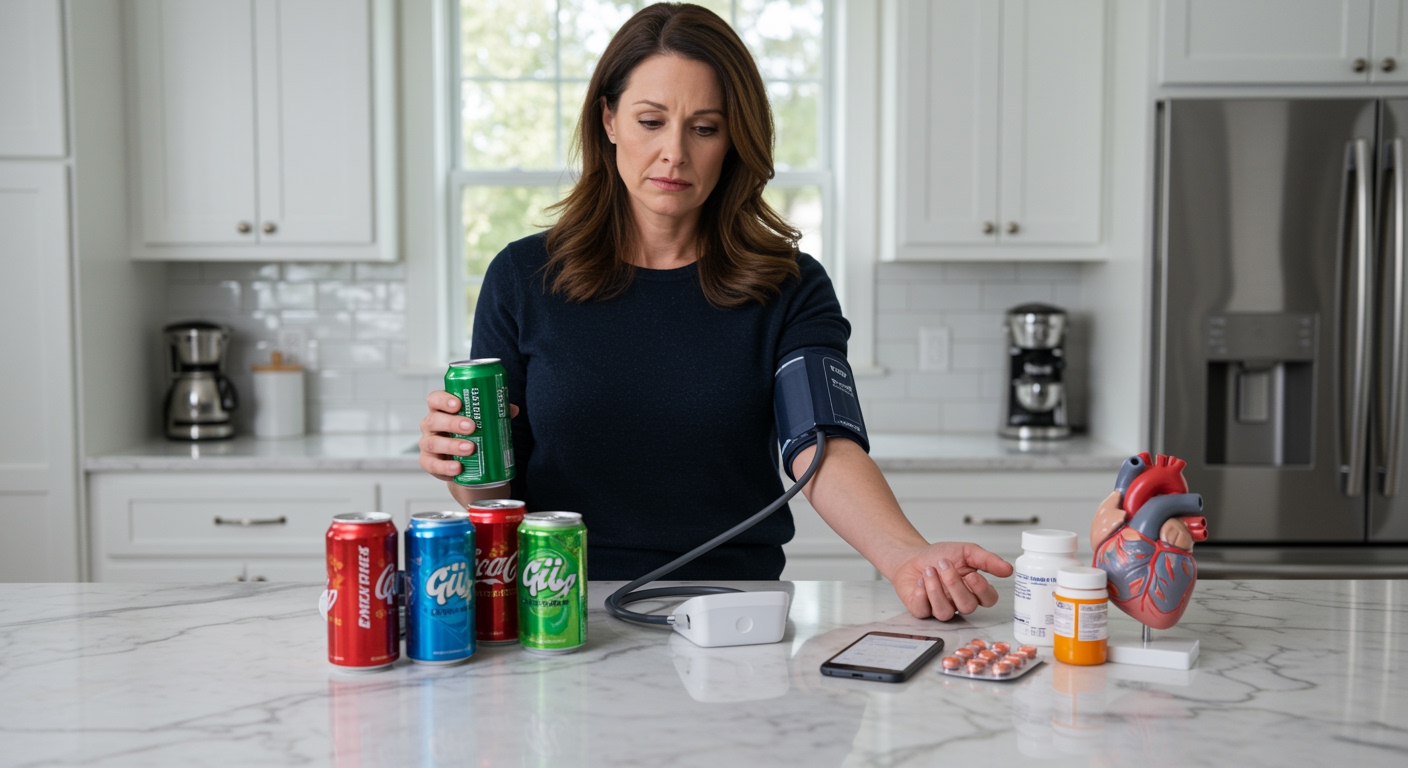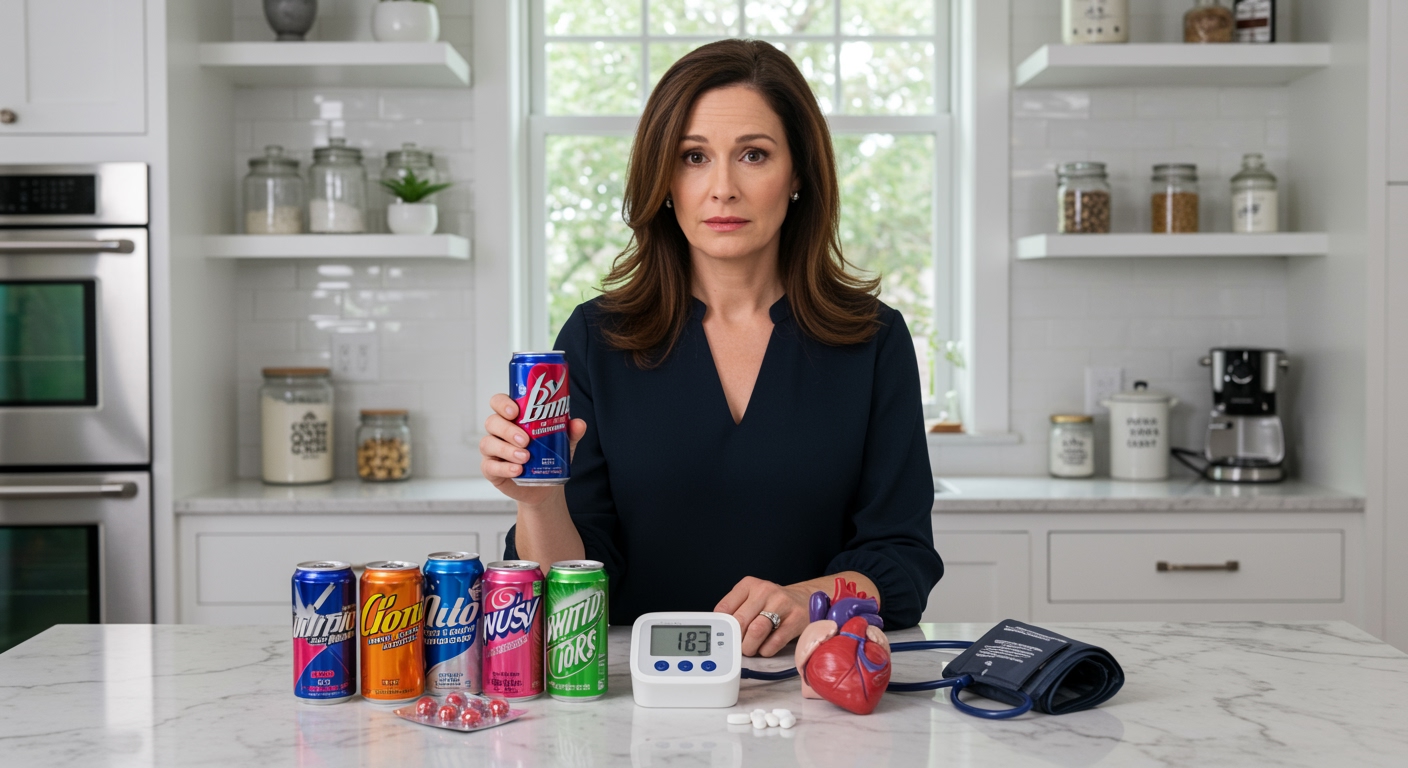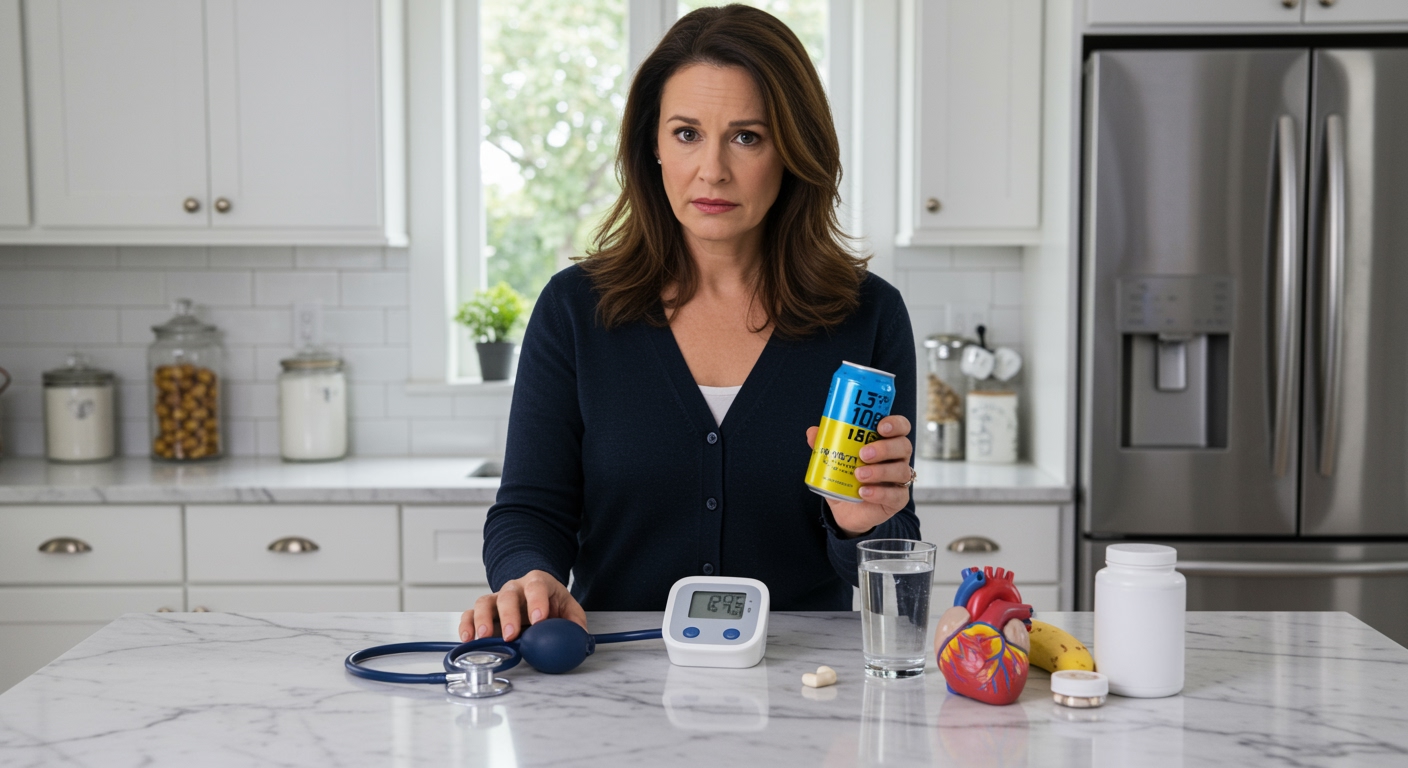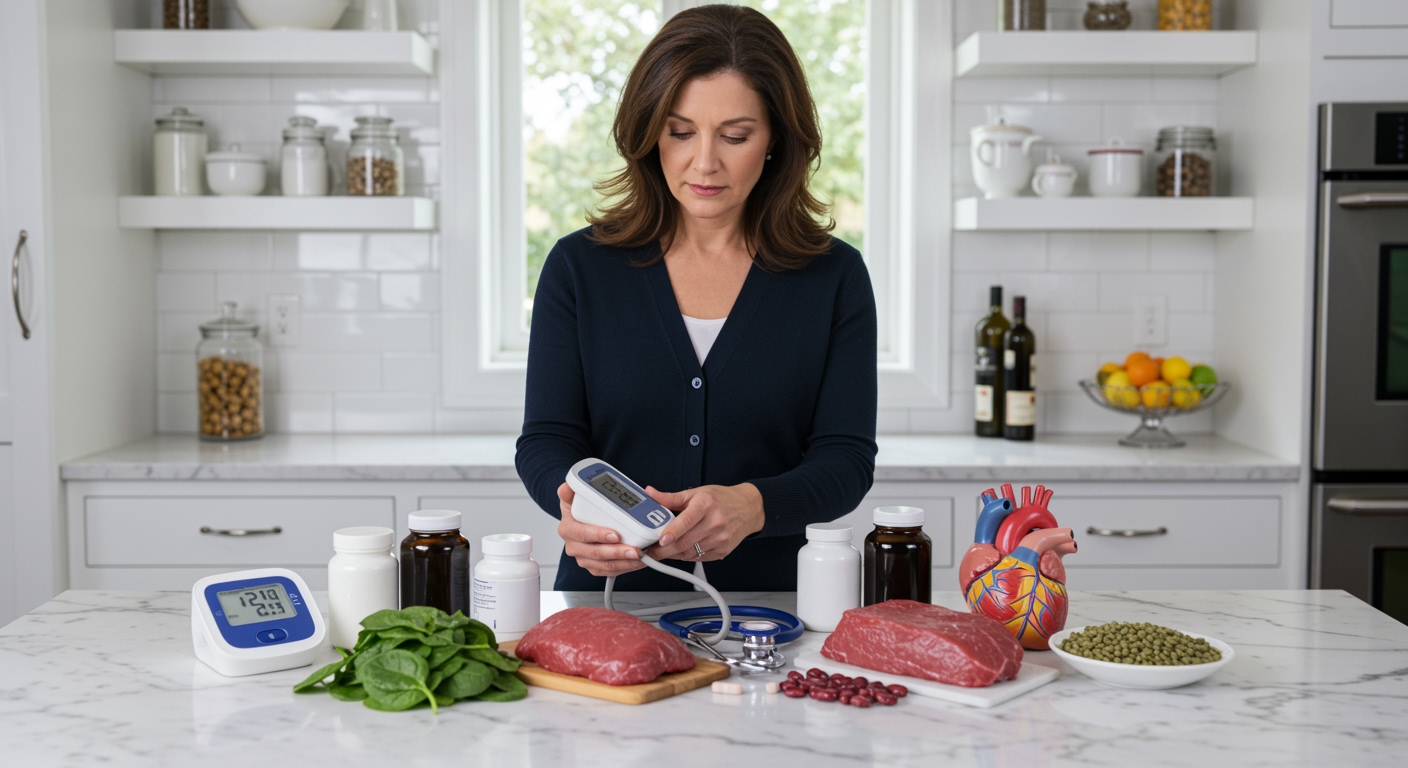✪ Key Takeaway: Energy drinks can dangerously spike blood pressure in people with hypotension, causing heart palpitations and serious complications.
Introduction
Your heart pounds like a drum after drinking that energy drink, but you have low blood pressure.
You might think energy drinks are safe because your blood pressure runs low, but this assumption could put your health at serious risk.
Hi, I am Abdur, your nutrition coach and today I am going to explain why energy drinks can be dangerous even with low blood pressure and what you need to know to protect your health.
What Happens When You Mix Energy Drinks With Low Blood Pressure?
Energy drinks contain massive amounts of caffeine that can cause dramatic blood pressure spikes in anyone, including people with hypotension.
A single energy drink contains 80-300mg of caffeine, which is equivalent to drinking 2-6 cups of coffee at once.
When you have low blood pressure and consume this much caffeine, your cardiovascular system experiences sudden stress as your blood pressure shoots up rapidly.
This dramatic change forces your heart to work much harder than normal, creating dangerous fluctuations that your body struggles to manage.
The combination of taurine, guarana, and other stimulants in energy drinks amplifies these effects beyond what caffeine alone would cause.
Your blood vessels, already adapted to lower pressure, suddenly face intense vasoconstriction that can trigger serious complications.
✪ Fact: Energy drinks can raise blood pressure by 10-15 mmHg within 30 minutes of consumption.
Why Do Energy Drinks Affect Your Heart So Dramatically?
Energy drinks trigger multiple pathways in your body that directly impact your cardiovascular system in ways that regular caffeine sources do not.
The high concentration of caffeine blocks adenosine receptors in your brain, which normally help regulate heart rate and blood pressure.
When these receptors are blocked, your body releases stress hormones like adrenaline and noradrenaline that cause your heart to beat faster and harder.
Taurine, another key ingredient, affects calcium channels in your heart muscle, potentially causing irregular heartbeats or arrhythmias.
The combination of these ingredients creates a synergistic effect that is much more powerful than consuming caffeine alone from coffee or tea.
Your kidneys also respond by retaining more sodium and water, which increases blood volume and puts additional strain on your cardiovascular system.
This complex cascade of reactions explains why people with low blood pressure can still experience dangerous cardiovascular events after consuming energy drinks.
✪ Pro Tip: Monitor your heart rate for at least 2 hours after consuming any energy drink to catch early warning signs.
What Are The Specific Dangers You Face?
People with low blood pressure who consume energy drinks face several serious health risks that can develop quickly and without warning.
Heart palpitations are the most common immediate danger, where your heart beats irregularly or feels like it is racing out of control.
Chest pain can occur when your heart muscle does not receive enough oxygen due to the sudden increase in workload and demand.
Anxiety and panic attacks often follow as your nervous system struggles to cope with the massive influx of stimulants.
Some people experience dangerous blood pressure swings where their pressure spikes high then crashes low, creating a roller coaster effect that stresses the entire cardiovascular system.
Dehydration becomes a serious concern because energy drinks act as diuretics while simultaneously increasing your metabolic rate and fluid loss.
In extreme cases, people have experienced heart attacks, strokes, and seizures after consuming energy drinks, even those with previously normal cardiovascular health.
✪ Note: Emergency rooms report increasing numbers of energy drink-related cardiovascular emergencies each year.
How Can You Boost Energy Safely With Low Blood Pressure?
Safe energy boosting strategies focus on supporting your natural energy production without putting dangerous stress on your cardiovascular system.
Eating small, frequent meals with complex carbohydrates helps maintain steady blood sugar levels that provide consistent energy throughout the day.
Staying properly hydrated with water and electrolytes supports healthy blood volume and helps prevent the fatigue associated with dehydration.
Regular light exercise like walking or stretching improves circulation and naturally boosts energy without overwhelming your system.
Getting adequate sleep allows your body to restore energy naturally and helps regulate the hormones that control blood pressure and heart rate.
If you need caffeine, stick to moderate amounts from coffee or tea, which provide gentler stimulation without the dangerous additives found in energy drinks.
Consider natural energy boosters like B vitamins, iron supplements if deficient, or adaptogenic herbs that support sustained energy without cardiovascular risks.
✪ Pro Tip: Track your energy levels and blood pressure patterns to identify the safest times for any caffeine consumption.
The Bottom Line
Energy drinks pose serious dangers for people with low blood pressure because they can cause dramatic cardiovascular changes that your body is not prepared to handle.
Your health is worth more than a temporary energy boost that could land you in the emergency room.
I would love to hear about your experiences with energy drinks or any questions you have about managing energy levels safely with low blood pressure, so please share your thoughts in the comments below.
References
At NutritionCrown, we use quality and credible sources to ensure our content is accurate and trustworthy. Below are the sources referenced in creating this article:
- American Heart Association: Energy drinks may provide jolt to heart function, blood pressure
- Healthline: Energy Drinks and Heart Attacks
- Manhattan Cardiology: Energy Drinks and Your Heart: Understanding the Risks
- Mayo Clinic: Mayo Clinic Minute: Can energy drinks cause heart issues?





